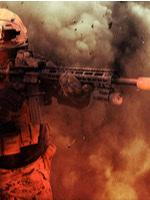The Pandemic, War, The Economy and Mental Health
Many friends, family, and clients say that they believed the Pandemic was over. However, Russia invaded Ukraine, and anxiety rose once anxiety and worry rose again. If these events aren't bad enough, we have been plagued by rising prices for everything from gasoline, building materials, and food, among many other essential items.
I was born in 1942, in the middle of WW 11. My grandfather's youngest brother, Uncle Sam, served in and earned the Purple Heart in the first World War. My three uncles served in World War 2. Then, there was the war to establish the State of Israel. Next was the invasion of Israel, the Korean War, Vietnam, invasion of Iraq, Gulf War, and Afghanistan, and more minor wars were between these. And, evermore, nations are gaining nuclear weapons and missiles. In these wars, including the current war in Ukraine, all of us witness acts of destruction. The destruction includes human lives, cities, buildings, and all the things people take for granted in their daily lives.
The great psychoanalyst, Sigmund Freud, wrote about the issues surrounding war, life, and death after World War 1.
Freud's Theories of Life and Death Instincts
Sigmund Freud's theory of drives developed throughout his life and work. He initially described a class of drives known as life instincts. He believed these drives handled much of our behavior.
Eventually, he believed that life instincts alone could not explain all human behavior. With his book Beyond the Pleasure Principle in 1920, Freud concluded all instincts fall into two major classes: life drives or death drives.
The Life Drive (Eros)
While we think of life instincts regarding sexual procreation, these drives include thirst, hunger, and pain avoidance. The energy created by the life instincts is known as libido.
Freud proposed Eros was opposed by ego forces (the organized, realistic part of a person's psyche that mediates between desires). In this latter view, he maintained that life instincts were opposed by the self-destructive death instincts, known as Thanatos.
Behaviors commonly associated with life instincts include love, cooperation, and other social actions. The life drives focus on preserving life, both the individual and the species. This drive compels people to engage in actions that sustain their own lives, such as looking after their health and safety. It also exerts itself through sexual drives, motivating people to create and nurture new life.
Positive emotions such as love, affection, and social cooperation are also associated with life drives. These behaviors support both individual well-being and the harmonious existence of a cooperative and healthy society.
The Death Drive (Thanatos)
Freud believed that people typically channel their death drive outwards and manifest as aggression toward others. However, this drive can also be directed inwards, which can cause self-harm or suicide.
Freud based this theory on various clinical observations. For instance, Freud noted that people who experience a traumatic event would often reenact that experience. While studying soldiers returning from World War I, Freud observed they had a tendency to repeat the traumatic experiences that took them back to the combat scene.
He noted similar behavior in his 18-month-old grandson, Ernst, who played a game called Fort/Da whenever his mother was away. To deal with his anxiety, his grandson would repeatedly toss away and retrieve a wooden reel with a piece of string tied around it. Freud wondered how "repetition of this distressing experience as a game fit in with the pleasure principle?"
Freud concluded people hold an unconscious desire to die, but life instincts largely temper this wish.
According to Freud, the death drive stands in stark contrast to the drive to survive, procreate, and satisfy desires. In Freud's view, all living organisms have an instinct" toward death." in Freud's view. The compulsion to repeat was "something that would seem more primitive, more elementary, more instinctual than the pleasure principle it overrides." He further proposed that the death drive extended that compulsion.
As yet another war presents the danger of spreading into a wider conflict. Could Ukraine become the starting point of a third world war? I could not help but ask myself if Freud was correct. Does humanity have a drive towards self-destruction and extinction? What do you believe? I am available to exchange ideas at:
Psychotherapy is available: www.allanschwartztherapy.net

 Along with American citizens and people worldwide, I am extremely upset about the Pandemic, Ukraine, Russia, and the economy.
Along with American citizens and people worldwide, I am extremely upset about the Pandemic, Ukraine, Russia, and the economy.